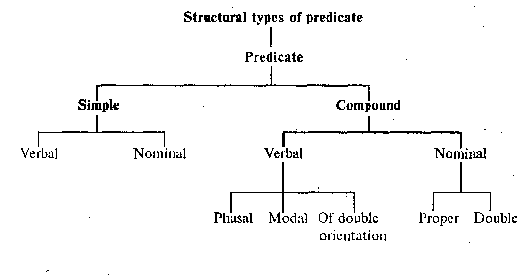
234
classified into phasal, modal and of double orientation Compound nominal predicates may be classified into
nominal proper and double nominal.
The simple predicate
The simple verbal predicate
§ 48. The simple verbal predicate is expressed by:
1. A verb in a synthetic or analytical form.
John runs quickly.
I was sent in to get my tea.
Perhaps you will even remember that woman.
When did life begin on earth?
I didn’t care about the consequence.
Don’t come too late.
2. A verb phrase (a phraseological equivalent of a verb denoting one action).
Here belong:
a) Phrases denoting single actions:
to have a look, to have a smoke, to have a talk, to give a look, to give a laugh, to give a cry, to take a
look, to make a move, to make a remark, to pay a visit, etc.
They comprise a transitive verb and a deverbal noun with the indefinite article.
Nurse Sharp gave him a look and walked out.
The man gave a violent start.
Did you have a sleep?
It’s time we were making a move.
b) Phrases denoting various kinds of actions. In most cases they comprise an abstract noun used with no
article but often preceded by an attribute:
to change one's mind, to get rid (of), to get hold (of), to lose sight (of), to make fun (of), to make up
one's mind, to make use (of), to take care (of), to take leave (of), to take part (in), etc.
I have never taken much interest in German songs.

